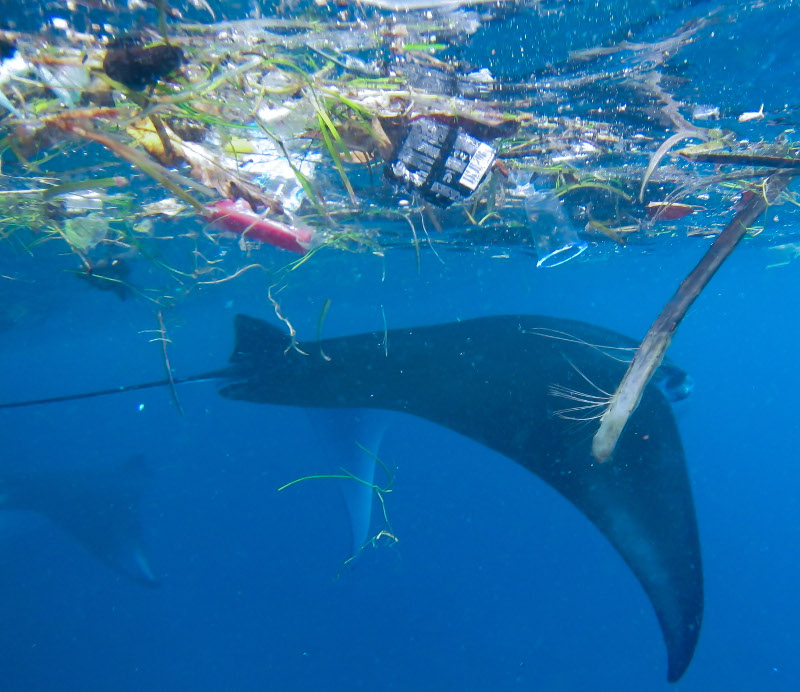Oceanic plastic risks raised
 Scientists are warning that microplastics in our oceans are posing a significant risk to filter-feeding marine animals like manta rays and whale sharks.
Scientists are warning that microplastics in our oceans are posing a significant risk to filter-feeding marine animals like manta rays and whale sharks.
Plastic-associated chemicals and pollutants can accumulate over decades and alter biological processes in the animals, leading to altered growth, development and reproduction, including reduced fertility, the analysis says.
While a definitive connection between microplastic ingestion and toxin exposure for filter feeders remains to be confirmed, studies into sea birds and small fish have found a link.
Marine filter feeders are likely to be at risk because they need to swallow hundreds to thousands of cubic metres of water daily in an effort to capture plankton. They can ingest microplastics directly from polluted water or indirectly through contaminated prey.
These species also tend to congregate in habitats which overlap with microplastic pollution hotspots, including the Gulf of Mexico, the Mediterranean Sea, the Bay of Bengal and the Coral Triangle, which is the marine area comprising the waters of South East Asian countries including Indonesia.
Research has also revealed that indigestible plastic particles may damage the digestive systems of these iconic species.
Murdoch University PhD student Elitza Germanov, who is also a researcher for the Marine Megafauna Foundation, says scientists are still trying to understand the magnitude of the microplastics problem.
“Despite the growing research on microplastics in the marine environment, there are only a few studies that examine the effects on large filter feeders,” she said.
“This is because it is difficult to assess plastic concentrations via conventional methods such as stomach analysis, because these are unsuitable for threatened species like whale sharks and manta rays.
“So we are using non-lethal sampling of small amounts of tissue, which we are testing for chemical tracers using sophisticated and sensitive analytical tools.
There are several species among the filter feeders that are listed by the IUCN (International Union for Conservation of Nature) as globally threatened species and are prioritised for conservation.
Understanding the effects of microplastic contamination through long-term metabolomics studies will help to shed light on the health of filter feeding species in response to plastic-associated toxins.
As plastic production is projected to increase globally, the establishment of long-term monitoring programs is needed in the feeding grounds of these ocean giants, so we can check on toxicity levels in these creatures over a period of time, the experts say.







 Print
Print